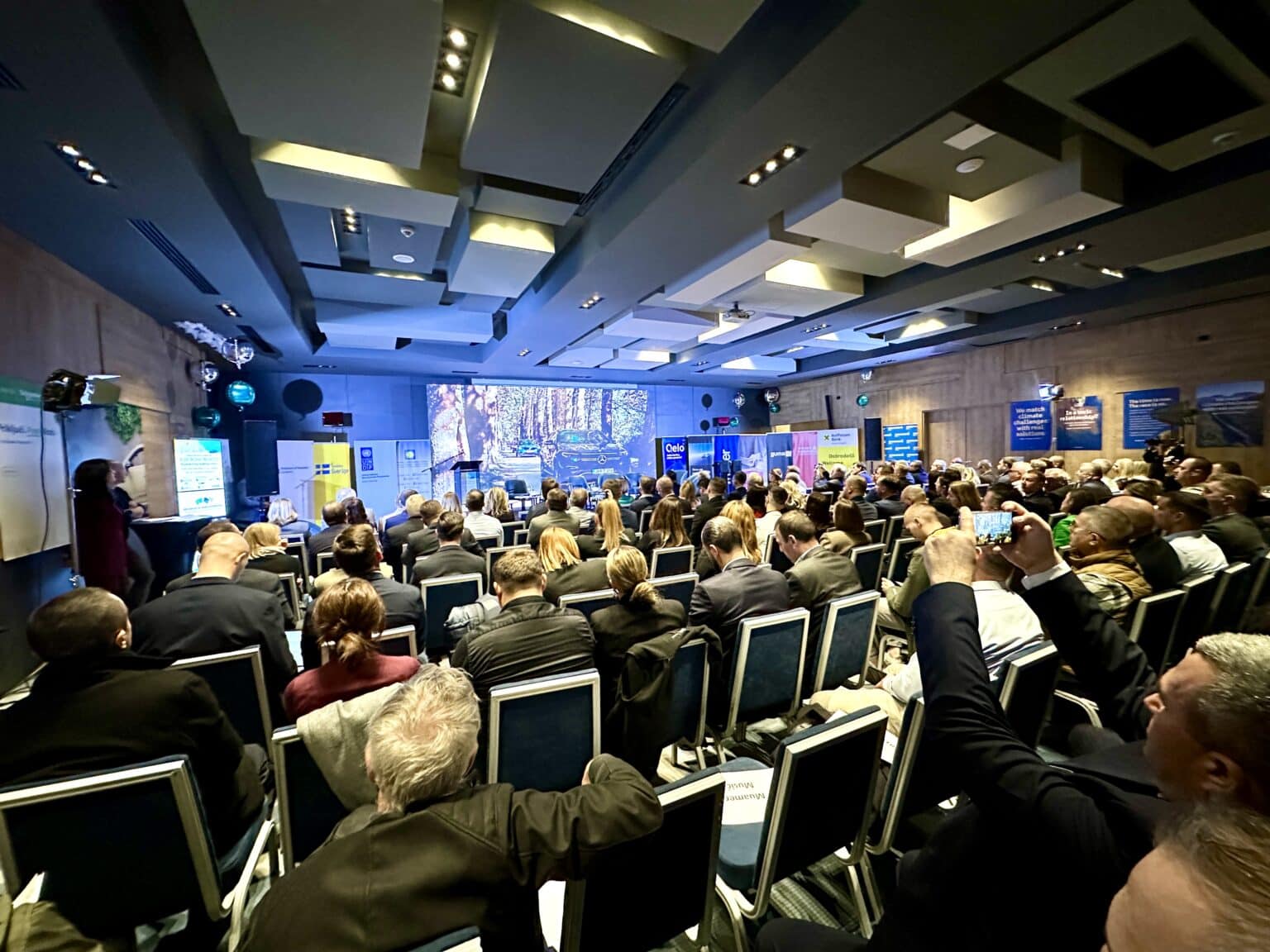As electric vehicle (EV) adoption accelerates across Europe, the Western Balkans are facing a defining moment in their transport transition.
Bosnia and Herzegovina’s first international conference on electromobility, titled “Electromobility: The Beginning or the End of the Ice Age?”, convened in Sarajevo on November 6–7, 2025, bringing together government officials, industry leaders, and international experts to assess how prepared the region is for the inevitable shift away from internal combustion engines.
Organized by the Chamber of Commerce of the Federation of Bosnia and Herzegovina, with support from the Government of the Federation of Bosnia and Herzegovina, UNDP, and the Embassy of Sweden as partner country, the event represents one of the first cross-sector efforts to align policy, infrastructure, and industry priorities. Despite this ambition, discussions throughout the day revealed both the momentum and the structural gaps that continue to slow down the electrification of transport in Southeast Europe.
The opening session, featuring Ellen Hiep of the Dutch Electric Vehicle Drivers Association, set the tone with a comparative overview of EV market growth in the EU versus emerging markets. While the Netherlands and Norway report EV shares exceeding 80% of new car sales, Bosnia and Herzegovina’s market remains in early development.
The “Voice of Industry” panel, powered by Star Import Mercedes-Benz, gathered experts such as Petter Haugneland from the Norwegian Electric Vehicle Association, DEKRA Serbia’s Velimir Jeremić, GTAI’s Hans-Jürgen Wittmann, and Elbil Sweden’s Nils-Erik Pettersson. Their interventions underscored a key dilemma: while Western Europe is entering a consolidation phase in electromobility, the Western Balkans are still grappling with basic enablers like charging networks, incentive design, and energy grid readiness. Local experts, including Miro Sesar, President of the Association of Authorized Car Dealers, pointed out that limited charging infrastructure and high import costs for EVs continue to deter adoption.
Participants drew attention to the policy asymmetry that hampers progress. Norway’s early and consistent tax exemptions, together with large-scale investment in public charging, were contrasted with Bosnia and Herzegovina’s fragmented governance structure, where competencies are divided between entity and cantonal levels.
In addition to the two main panels, the conference program featured several technical and business presentations highlighting regional innovation. Franz Liebmann from Austria held a session addressing 777,777 electric kilometers – Earth, Moon and back. Meanwhile, the Charger BIH application was presented by Josip Šarić, Director of Etiris d.o.o., demonstrating a local digital solution aimed at improving access to EV charging networks.
The day concluded with a panel discussion titled “Life After Vehicles – Quo Vadis?”, powered by Fondacija Mozaik and Sparkasse Bank, exploring the environmental and economic implications of vehicle life-cycle management and battery recycling. Panelists included Amel Agić, Director of Corporate Banking at Sparkasse Bank; Vilma Tunjić-Juzbašić, Director of Mozaik ESG Solutions; Elma Babić-Džihanić, Director of Zeos Eko-Sistem d.o.o.; Prof. Dr. Noshin Omar, President and Founder of AVESTA Holding (Belgium); Damir Uzunović, Director of Volvo Car Center Sarajevo; and Lorand Szabo, General Manager of Philip Morris BiH.
Throughout the sessions, a recurring theme emerged: the transition to electromobility in Bosnia and Herzegovina is less a question of technological feasibility than of institutional readiness. Stakeholders recognized that pilot projects and international partnerships could bridge part of the gap, but without sustained policy continuity and investment in public infrastructure, market uptake will remain limited.
The conference’s broader objective, to exchange expertise and challenge skepticism about electromobility, points toward a regional dialogue that extends beyond Bosnia and Herzegovina. As EU member states tighten internal combustion phase-out deadlines, neighboring economies must define their role within the evolving European transport ecosystem. Sarajevo’s first electromobility conference signals that this conversation has begun — but the path ahead will depend on how quickly policy frameworks and market incentives can catch up to technological momentum.
Stay updated on the latest in energy! Follow us on LinkedIn, Facebook, and X for real-time news and insights. Don’t miss out on exclusive interviews and webinars—subscribe to our YouTube channel today! Join our community and be part of the conversation shaping the future of energy.
